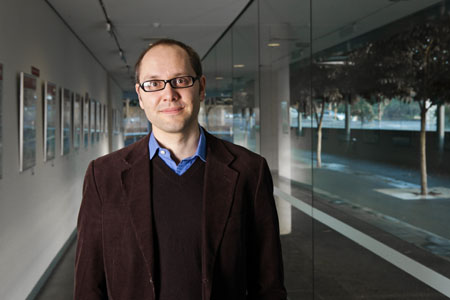Aussie wins $100k Microsoft research grant

Electrical devices used to more quickly and accurately diagnose heart attacks and strokes may come into trial in 2015, with a lecturer at the University of Sydney being awarded a $100,000 grant from Microsoft to fast track his research.

Dr Alistair McEwan (Credit: University of Sydney)
Dr Alistair McEwan of the University of Sydney School of Electrical and Information Engineering was awarded the $100,000 Microsoft Research Faculty Fellowship grant to investigate electrode-skin interfaces for electrical devices.
McEwan says that existing devices used in the diagnosis of heart attacks and strokes are prone to interference caused by movement between the body and electrodes.
"This movement introduces error in bio-electronic recording, wasting precious time and limiting use of monitoring devices outside hospitals," he said. "A good example of this is movement of defibrillator electrodes during CPR, thought to limit the number of successful resuscitations by up to 50 per cent. Electrical impedance measurements are very sensitive to movement, normally considered a source of noise."
In order to combat this, McEwan's device takes several impedance measurements to account for movement.
"[The measurements] adaptively condition multi-electrode array-based sensors, [which] use this information to improve the biological signal with advanced signal-processing techniques, such as compressed sensing."
He said that better devices would enable more efficient diagnosis, particularly with strokes, which would improve patients' likelihoods of recovery. He hopes that with the funding, preclinical trials will be able to start early in 2015.
McEwan is the first Australian university-based recipient of the Microsoft grant. His other research includes the development of low-cost electronic devices to detect newborn malnutrition, obesity and diabetes in the developing world, and he is responsible for teaching Australia's first specialist undergraduate bioelectronics degree.